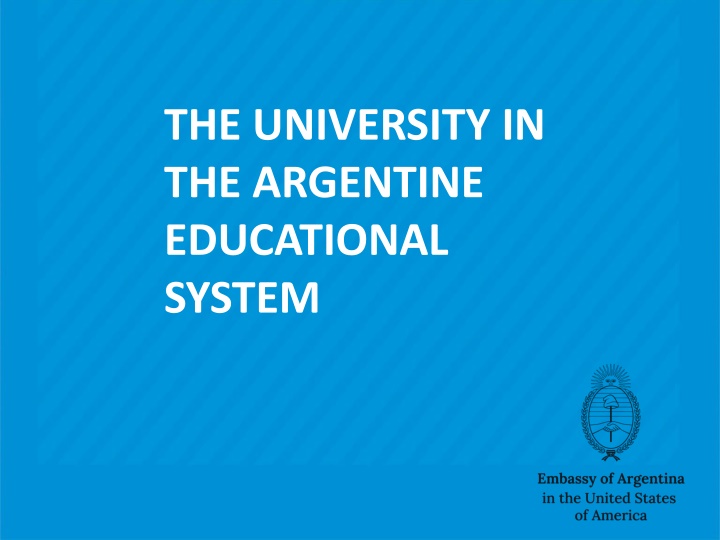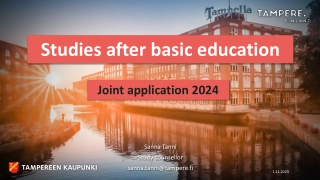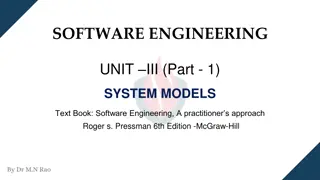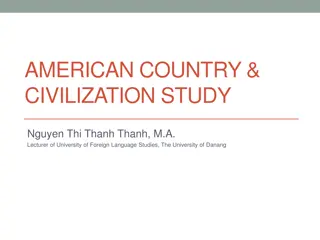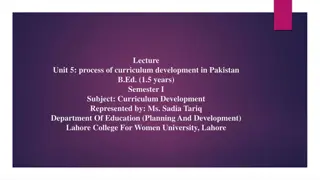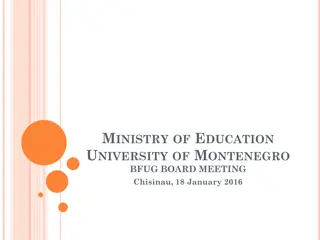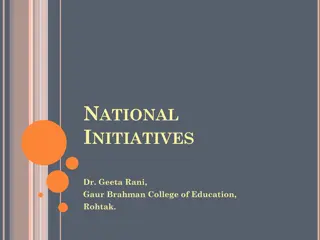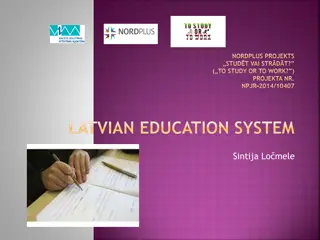Argentine Education System Overview
The Argentine educational system is designed to provide education as a public good and a personal and social right, guaranteed by the State. It encompasses different levels, cycles, and modalities of education, with the National State, provinces, and the Autonomous City of Buenos Aires having the primary responsibility for ensuring access to education in conditions of freedom, equality, and equity. The system includes optional higher education, mandatory primary and secondary levels, universities, and higher education institutions offering a variety of disciplines and degrees.
Download Presentation

Please find below an Image/Link to download the presentation.
The content on the website is provided AS IS for your information and personal use only. It may not be sold, licensed, or shared on other websites without obtaining consent from the author.If you encounter any issues during the download, it is possible that the publisher has removed the file from their server.
You are allowed to download the files provided on this website for personal or commercial use, subject to the condition that they are used lawfully. All files are the property of their respective owners.
The content on the website is provided AS IS for your information and personal use only. It may not be sold, licensed, or shared on other websites without obtaining consent from the author.
E N D
Presentation Transcript
THE UNIVERSITY IN THE ARGENTINE EDUCATIONAL SYSTEM
ARGENTINE EDUCATION SYSTEM NATIONAL STATE PROVINCES AND CABA Guarantee Create Authorize Plan Organize Supervise Finance
ARGENTINE EDUCATION SYSTEM Education and knowledge are a public good and a personal and social right, guaranteed by the State. The National State, the Provinces and the Autonomous City of Buenos Aires have the main and non-delegable responsibility of providing education and guaranteeing the exercise of the right to teach and learn, in conditions of freedom, equality and equity. The educational system is the organized set of educational services and actions regulated by the State that make possible the exercise of the right to education, integrated by all the jurisdictions of the country and in all its levels, cycles and modalities of education.
ARGENTINE EDUCATION SYSTEM Optional HIGHER LEVEL Mandatory from 4 years old. INITIAL LEVEL The duration varies according to the degrees. HIGHER EDUCATION INSTITUTIONS Mandatory It lasts 6 or 7 years dependingon the Jurisdiction TechnicalCareers Teacher Training PRIMARY LEVEL UNIVERSITARY Mandatory It lasts 6 or 7 years depending on the modality. Dividedinto 2 or 3 cycles according to modality. The first cycle is common to all orientations. The other two are oriented. UNIV. SECONDARY LEVEL INSTITUTES UNIVERSITIES A single disciplinary area Variety of organically structured non- related disciplines
HIGHER EDUCATION SYSTEM HIGHER EDUCATION SYSTEM Federal governmentand administration, in charge of each provincial jurisdiction. Institutions:Higher Technical and Teacher TrainingInstitutes. Degrees: Higher Technician and Teacher ARGENTINE HIGHER EDUCATION SYSTEM Governmentandnationaladministration Institutions:National,private,provincial,internationalor foreignuniversities andnationalandprivateuniversityinstitutes. UndergraduateDegree: UniversityTechnician UndergraduateDegrees: Bachelor's degreeor equivalent PostgraduateDegrees: Specialist, Magister,PhD UNIVERSITY SYSTEM
THE UNIVERSITY AS A CONVENING SPACE ESSENTIAL FUNCTIONS A U T O N O M Y ACADEMIC UNIVERSITY EXTENSION SCIENTIFIC
ARGENTINE UNIVERSITY SYSTEM COUNCIL OF UNIVERSITIES FEDERAL COUNCIL MINISTRY OF EDUCATION SPU UNVERSITY CPRES CRUP CIN
EVALUATION AND ACCREDITATION EXTERNAL INSTITUTIONAL ASSESSMENT ACCREDITATION It starts with a Self-Assessment process. Tests the organization and operation Examines processes and results Recommends courses of action for improvement Must be carried out every 6 years. State-regulated undergraduate careers and that their professional activity may jeopardize the public interest and all graduate careers. The Council of Universities sets standards for evaluation and accreditation. It is periodic: every 3 or 6 years. It is carried out by peer evaluators. 12 MEMBERS 3 for CIN 1 for CRUP 1 for ANE 3 for each chamberHCN 1 for ME National Commission of University Evaluation and Accreditation CONEAU
